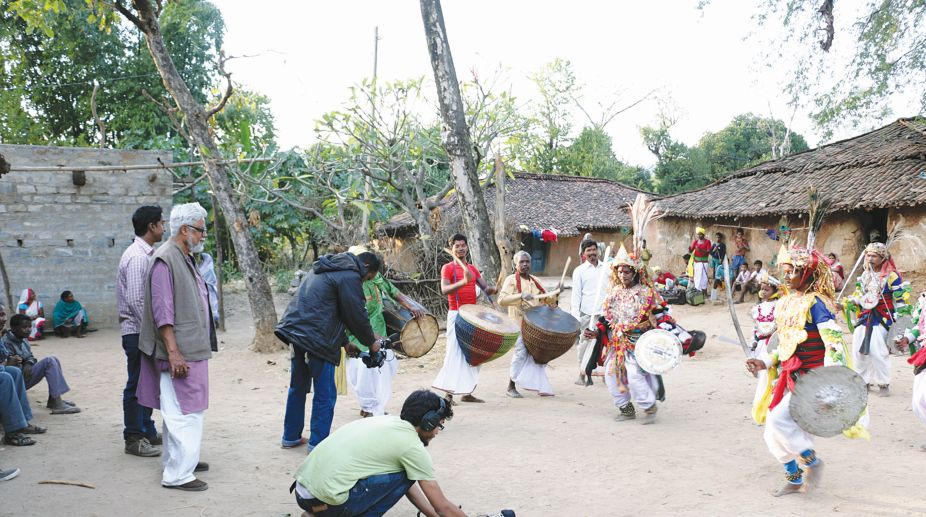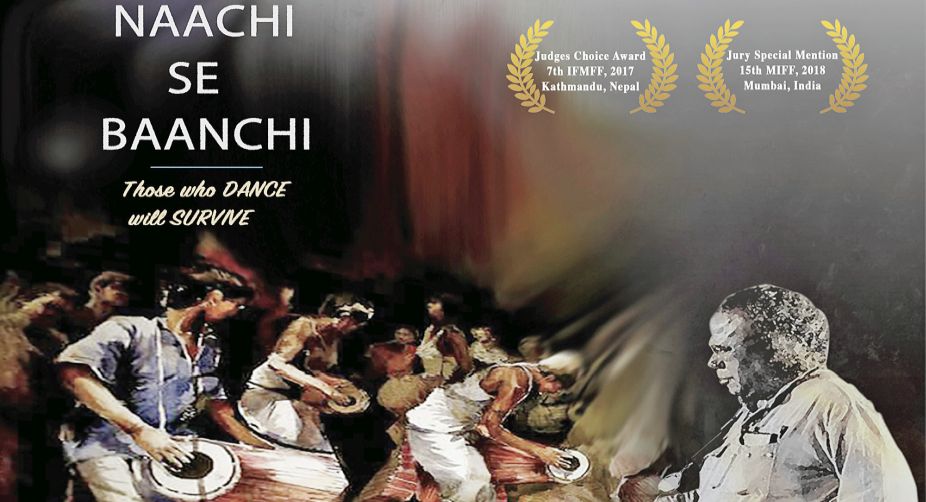Rahul Gandhi criticises BJP for naming ‘Adivasi’ as ‘Vanvasi’
The Congress MP accuses the saffron party of snatching their rights.
Nachi Se Banchi, a touching film on Ram Dayal Munda, bagged the National Award for the Best Biographical Documentary. He was an anthropologist, linguist, folklorist, music exponent, academic, intellectual and writer, but above everything else, a great human being.

In an ambience in which the tribal identity is insistent on affirming its strength, presence and visibility within the mainstream population, a documentary on one of the rarest of rare great “adivasi” in Indian history draws attention to the egalitarian reality of all Indians everywhere.
The film traces the life, growth and evolution of the late Ram Dayal Munda, who, according to the two directors of the film, namely Bijoo Toppo and Meghnath was a living symbol of indigenous cultural reawakening.
Nachi Se Banchi is collecting awards left, right and centre not only because of the powerful subject it deals with – Dr. Munda, but also because the film’s strategy of approaching and fleshing out the life of this great man through story, music, dance, literature and everything that encapsulates the term “culture” in every sense.
Advertisement
Produced by Films Division, among the many awards the film has gathered in the National Film Award bestowed on the two directors that comprises of the Rajat Kamal and a cash prize of Rs 50,000 each for Films Division and the two directors.

The Award was for the Best Biographical film and the citation states that the award has been bestowed for “Tracing the footprints of the global yet rooted leader Padmashree Ram Dayal Munda’s inspirational journey through his music, academics and politics.”
The 70-minute film was made on a total budget of Rs11 lakh that has covered the entire topography that fleshes out Munda’s life covering his home town Khunti, other parts of Ranchi and beyond Indian shores such as Chicago and Minessota in the US where Munda went to teach and write and spend a sizable slice of his life.
The title, Nachi Se Banchi is inspired from Munda’s famous slogan he created in the complete conviction that the only way for the tribals to survive and triumph over social, financial and other hurdles was by keeping their culture not only alive but evolving and throbbing with life.
For Dr. Munda, the preservation of the tribal way of life, culture and languages was integral to his work towards improving their lot and fighting for their rights to the forest land they not only were born and brought up in and lived in but also were traditional owners of those forest lands.
The film opens with the chanting of the Sarhul Festival mantra interpreted and composed by Ram Dayal Munda on the soundtrack. The voice is that of Dr, Munda while the camera travels across the Jharkhand landscape closing in on different slices of everyday public life.
The camera then moves to a shot of Munda chanting the mantra. As the song goes on in the background, the camera keeps panning across shots of Sasandri, a death memorial stone taken from different angles to add perspective and dimension to the image of this great man intercut with still photographs of Dr. Munda cutting to show him singing and dancing and beating on the drums during an adivasi festival procession.
There are photographs of Ram Dayal and his son Gunjan followed by a collage of his life in short as seen through old and archival photographs spanning his childhood and youth mixed with shots of Jharkhand villages that defined his growing years.
The film takes the viewers along with itself on a long journey spiked with still photographs, video recordings of his past, clippings of old interviews of the great man which naturally embrace not only his life but also the people who influenced his works and life deeply such as his American wife who he later separated from due to cultural and geographical reasons.
The film pays its personal homage to old Adivasi heroes and memorials built in the memory and as tribute to people who made history. Drawings, structures, sculptures, idols including pictures of the high school in Khunti in which Ram Dayal studied all form a part of the history of this wonderful man who struggled to assert the collective Adivasi identity without making a noise about it or publicising it in any way.
There is also an interview with his school friend Dr. Vinod Nag. All this is beautifully interspersed with the life, culture, music, dance and folk performances of the tribal communities with references to Ram Dayal’s own rare talent as a flautist.
Munda also invokes Shakespeare, Rabindranath Tagore, Karl Marx, Friedrich Engels, Martin Luther King, Sido-Kanhu-Birsa, Mahatma Gandhi and Jaipal Singh. It is a very colourful film filled with music, song, poetry, chants and stories picked up from the real life of Munda in a way that never allows the narrative to drag or bore at any point.
Born in an Adivasi Family of Tamar in Jharkhand he went for his higher studies in The United States of America. Later, he taught at the University of Minnesota. He came back to India to teach at Tribal and Regional Language Department of Ranchi University and subsequently became the Vice Chancellor of the same University.
Ram Dayal Munda was the leading intellectual who has contributed to Jharkhand movement immensely. Dr Munda represented Adivasi voices in Rajya Sabha and United Nations. He was bestowed the Sahitya Academy Award and Padmashree in 2009 and passed away in September 2011 at the age of 72.
He came back to India to teach at the Tribal and Regional Language Department of Ranchi University and subsequently became the Vice Chancellor of the University. Ram Dayal Munda was the leading intellectual who has contributed to Jharkhand movement immensely.
Bijoo Toppo is one of the first Adivasi filmmakers who have effectively used the medium of cinema to counter the misrepresentation of his community by the “mainstream” media. His films have bagged national awards and international recognition. Meghnath is an activist working in Jharkhand for the past 30 years.
He has been with the people’s struggle against destructive development. As a filmmaker, he has tried to document the voice of the section of people who remain unheard of and also unseen. He makes films with Bijoo and also teaches in the Mass Communication Department of St Xavier’s College, Ranchi. The organisation they have founded together in the beginning of the 1990s with some committed youngsters is called Akhra.
Their earlier documentaries have won National and other awards to and today, they are on the forefront of spreading and perpetuating the rights of the adivasis through the medium of cinema and workshops and screenings of films. They are very grateful to Dr. Munda’s son Gunjan Munda for cooperating at every step of this project and also lending his voice-over.
They say, “We feel that Adivasi personality is not well documented and represented in our Films and Media and so this film is our tribute to the great multi-dimensional personality.”
Meghnath goes on, “He was our friend for the last 27 years and we have worked hand-in-hand on many occasions for cultural issues that riddle the adivasis. I have researched the content for two long years and visited the places he has visited and studied in besides library research.”
Nachi Se Banchi convincingly places Munda as the multi-faceted man that United Bihar and Jharkhand respects and loves as an anthropologist, linguist, folklorist, music exponent, academic, intellectual and writer. But above everything else, as a great human being.
Advertisement